NPC – My newest novel will be out in two months, but you can get a sneak peek at the novel right here and now! Below are Chapters One and Two, following our dual main characters, Samael, a serial killer who believes we’re living in a simulation and that most people populating it are NPCs (Non-Player Characters), and Ezekiel, a pastor having a crisis of faith, who finds himself confronting a madman and his own beliefs about the nature of reality. It’s a mind-bending novel that fans of INFINITE and ALTER will love. Hope you enjoy the first two chapters!
1
SAMAEL
“What’s the value of a life?
“A human life, to be specific. Not animals. Other than tasting good, animals lack unquestionable value. They fill a role, sure, but they’re barely a cog in a machine. If a single gear is removed from a watch, it ceases to function. Kill a lone squirrel, or even a thousand. The world wouldn’t notice. The grand scheme would continue.
“All around the Earth, entire species are going extinct. Hundreds a day. The Sixth Great Extinction careens ahead faster than the events that wiped out the dinosaurs 65 million years ago.
“If you believe the Earth is that old.
“If you believe something as absurd as dinosaurs ever walked the Earth.
“It’s a great narrative, but a distraction from the real question.
“The value of a human life. Of your life.”
“I-I don’t know!” The man struggles against the zip-ties binding his wrists to the chair’s arms. The plastic lacerates his skin. Blood seeps from the wounds. He winces and calms.
Even his simple mind can register and respond to pain. It’s some of the most basic coding in all of nature. Pain avoidance. Danger awareness. Survival. It’s an algorithm present in everything from blue whales to ants.
“People aren’t rare,” I tell him. “There are nearly eight billion of us on the planet. By 2050, there will be ten billion, which is the maximum number we’re capable of feeding…unless everyone goes vegan. And let’s be honest, Americans would rather let the rest of the world starve than give up our meat.”
My voice is deep and gravelly. Sexy to some, but most men find me intimidating. Being 6’4” and built like a lumberjack helps, too.
The man’s eyes widen. “Y-you’re not going to eat me, are you?”
“Do I look like a cannibal to you?” I stare down at the insignificant. Will he give me an intelligent answer?
“N-no, sir.”
I roll my eyes. “What does a cannibal look like?”
He just stares. The question doesn’t compute. There is nothing in his source code or limited experience with which to form an answer.
“Back to value. Let’s get a little more specific.” I lean in close enough for him to see that my front teeth are slightly different colors, that gray hair is just starting to appear in my beard, that my eyes are cold blue with a starburst of hazel. Women love my eyes. “What is the value of your life?”
“I-I don’t know.”
“How could you not?” I ask, not expecting an answer and not getting one.
The man pisses himself.
I honestly thought he would beg for his life. To offer me anything—even things he doesn’t have—to save himself. But this… Hooked fish have put up more of a fight.
There’s a designer chair in the corner. Chrome limbs and orange cushions. It stands out in the bright white room. I drag it out and across the floor. Its feet squeal across the polished hardwood, echoing off the solid walls and ceiling. The volume of it makes the man wince, until I reach the plastic laid down on the floor around my companion. Chair turned around, I sit in it backwards, elbows resting on the back, like I’m a hip school principal about to ‘get real’ with a troubled student.
“Tell me about your family.”
“W-what?”
“Your family. The people who raised you.”
“I-I…”
“Seriously?” I ask, confused and honestly a bit excited.
“Mom and Dad,” he says. “A brother.”
“They have names?”
His forehead furrows.
“You can’t remember your parents’ names?”
“I’m scared, man!” The man wails. Spit sprays. Drool and tears drip. I’d anticipated a mess, but this man is like a leaky submarine stuck at the bottom of the Mariana Trench.
“If you feel a shit coming on,” I tell him, “clench that sphincter like your life depends on it, capisce?”
He stares. Clueless.
Seriously…
“Do. Not. Shit. Yourself.”
He nods. Frantic.
“Names. Mom and dad. Now.”
“Sally and Joe.”
“Your brother?”
“Steve.”
I shake my head. “Not John?”
“Huh?”
“Your family’s names. They’re all kind of generic and bland, don’t you think?”
He still looks confused.
Hold on, I think, trying to hide my rising humor. “What’s your name?”
“J-John.”
Face in hands, I chuckle. “Course it is.”
When I look up again, no trace of a smile lingering, he leans back, face pale and twisted with a specific kind of discomfort.
“I mean it, John. You shit, you die, here and now.”
He nods. His jaw clenches tight. Probably his ass cheeks, too.
“Where is your family?”
“I ran away.”
“When?”
“A long time ago.”
“Where from?”
“The city.”
This is going to take all night.
“Which city?”
“B-Boston.”
“You do that a lot.” I’m just making an observation. Wasn’t really intended as a conversation starter.
“D-Do what?”
“D-Do this. A single stutter at the beginning of a sentence. It’s sloppy.”
“I’m afr-fraid.”
“Not that time, though,” I point out. “You’re adapting, but not very fast.”
No response.
“Okay, fish-faced John, from Boston, what else can you tell me about your life?”
“You know everything worth knowing,” he says.
I give a slow nod. “I think we might agree on that… But I want to make sure. So, tell me if I’m wrong.”
He nods, allowing frail hope to seep into his eyes.
“You ran away from home in your teens,” I say, ticking off points with my fingers. “You’ve been living on the streets since. You drink heavily. Shoot up heroin. You don’t remember much of anything about anything. Every day is kind of a haze.”
He dips his head in a weird kind of a nod.
“What was the last thing you ate?”
“I-I…” He sighs. “I don’t know.”
“You don’t think that’s strange, do you? Well, you don’t think much at all.”
I wait for a response. Don’t get one.
“You’re not even offended that I’m insulting your intelligence.”
He’s defeated. “I just want to live, man.”
“Why is that?”
He stares again, like I’ve just asked him to explain the Riemann Hypothesis.
“Because even the ants want to live, that’s why.” I stand from my chair. “And that is the dilemma you’re going to help me solve. What is your value, John? It certainly doesn’t lie with your contributions to society. You live on the fringe, probably not noticed by anyone for as long as you’ve been here—until this moment. You have no family. No home. You barely exist. I’m not even sure you can really think.”
“Hey—”
“Please. It’s too late for that.” I pull a sheet away from the tray table positioned beside him. He sees the contents and reacts by furrowing his brow slightly. He was expecting blades, a hacksaw, maybe some pliers, but lucky for him, I’m not a Philistine. “You’re a minor detail in a much bigger picture. Less than a pixel. Insignificant. Meaningless. You will not be missed.”
“W-wait. What does that mean?”
My grin is lopsided. “Even you know what that means.”
I pluck a syringe from the tray. Its small size is dwarfed by the power of its contents.
He tenses, eyeing the needle. “What is that?”
“Try not to worry. You’ll like it.” I place the tip over a track mark in his arm. The needle slips through skin and vein with ease. The fluid rushes into his bloodstream, whisked away toward his brain. “An injection directly into the systemic circulation is the most efficient delivery route for—”
John’s eyes roll back and then close.
“You see?”
If the belt wasn’t holding his head upright, he’d have lolled to the side. A skull clamp would have been preferable, but too obvious. I need him upright and still. Even unconscious men can twitch on occasion. The results of my first run-through were inconclusive. All the kicking and shaking… The screaming… It was impossible to think. And what makes John…John…shouldn’t change if he’s unconscious.
I move into place, high-speed, pneumatic surgical drill in my hand. I’d typically create a two-millimeter incision, and dilate it to eight, but I’m not going to be putting John back together again. I place the cranial bit over his prefrontal cortex and pull the trigger. After a soft tear and a spritz of red, the drill grinds against skull. Gentle pressure is all it takes. Just thirty seconds…
“And we’re in.”
2
EZEKIEL
A period graces the end of my sermon. Not an exclamation point, leaving the congregation feeling jazzed for Jesus. Not a question mark, to get people thinking about their place in God’s kingdom.
A period.
It accurately reflects the state of my heart, but it won’t work.
The delete key sticks. Erases an entire sentence before I pry it up.
“Goddamnit.”
Sorry.
Forgive me.
Do you even care?
I type the sentence again, getting only halfway through before giving up on the whole thing. I’ve already downloaded a series of pre-written sermons. Already paid for a year’s subscription to more. Every single one of them ends with a question mark or an exclamation point, and if I’m honest, they’re better than anything I can come up with.
Because I’m a sham.
Not on the level of someone who’d be picked as a presidential advisor, or who would take millions of dollars from people who don’t have it.
But a sham, nonetheless.
I wasn’t always. After I watched my wife waste away for two years, my faith was shaken. It’s an annoying stereotype for believers—losing faith because of hard times. It’s even worse for pastors. I’m supposed to be this unwavering rock, like Peter…but even Peter denied Jesus. Three times.
And I’m not there yet. I still believe. I just…don’t care.
What’s the point?
Hearts and minds, I suppose, but my days of counting altar calls are done. Sermon on the Mount, the Great Commission, the Ten Commandments… I’ve just had enough of it all.
Here’s what I know.
I didn’t get sick. Bonnie did.
I’m still alive. And she isn’t.
Pity swallowed me up, poured over me by well-meaning people, until I drowned in it. Became Christian in the Slough of Despond. Solomon Ull Vincent in the Underworld. Artax in the Swamp of Sadness.
And I’m still in it. Stuck in my own mire of despair. Not even fighting to get out.
Everything ends with a period.
I’m indifferent.
No one will help me out. Not a single hand will reach down and pluck me from the depths.
Because no one knows.
Jesus will pull you out, says the well-trained Christian voice inside my head. But I ignore it and sink a little deeper. It’s comfortable here. I feel the weight on my shoulders a little less, body buoyed by the viscous belief that I am to blame. That I wasn’t good enough.
Everyone likes the story of Job. The good man who suffered life’s worst, kept his faith, and then regained double what he had lost. Like that’s a happy ending. Like he didn’t mourn his dead wife and children for the rest of his life. People try to replace dead dogs with new puppies, but it doesn’t remove the pain of loss. Job’s pain was eternal. What came after loss and pain was a bandage, not a cure.
The printer whirs to life, snapping me back to the reality that the worship team is wrapping up their third praise song, and I’m not in place. There was a time when the previous pastor of the church would sit off to the side of the podium, in what is best described as a throne, cushioned with red felt. When I took his place, I had the chair removed. I now sit off to the side of the congregation, until it’s time to climb up the stage stairs and speak God’s word to his people.
I take the four-page sermon without looking at it, exit my office just in time to casually fill a Dixie cup with water, take a drink, and step up behind the podium.
I look down at the sermon, which is broken up into bullet points. I’ve been at this a while. All my life, really. Bullet points are all I need. I can fill in the rest with stories from my past, or anecdotes I’ve heard, or even an episode of The Simpsons if I need to. The only problem is the title.
I printed the wrong sermon.
Shit.
Too late now.
First rule of being a pastor: show no weakness.
What good is a pastor who breaks down in tears when visiting a congregation member in the hospital, or at a funeral, or even a wedding?
Swallow it down.
Put on a smile.
Cry later.
“Hey guys,” I say. Staying casual is the key to not cracking. “I’m going to take my time with this today. You don’t mind. You want to be here. It’s not like any of you have anything important to do, right?”
This gets a laugh, which calms my nerves. But it also makes me a little angry. Not because they’re laughing, but because that was one of those ‘funny because it’s true’ jokes. If my sermon ran a little long, a good number of people here would get up and leave to go watch the Pats game.
“Okay, so, five things you can learn from Job. Keeping it light today.”
Another laugh.
“Let’s turn to the Lord in prayer, and then dig into Job.”
I close my eyes and pray. I can do it without thinking. When I reach, “Amen,” I’m almost not prepared for it.
I look up into the eyes of the people waiting for me to provide some kind of revelation into the heart and mind of God himself, and I feel the despond seeping down my esophagus.
Then I speak.
The words flow.
I sound like I mean them, and maybe I do. I’m just not feeling it.
The five points are basic. One of them is on theologically shaky ground. But I cruise through the sermon in fifteen minutes—which will make them happy—and land it with, “So when you sit in front of your TV later today, and the game is over, and you’re feeling good about another victory—or not—remember what Sundays were like in the 80s. The best thing about the Pats in the 80s was the Super Bowl Shuffle, and that was the Bears!”
Biggest laugh of the morning. And then, “Were you always a Pats fan? Will you be if they can’t win without Brady? You might hang in there for a couple of years, but eventually, you might look forward to one of my sermons running long.”
I stand silent for a moment. Was that the end? Did I just end on a period?
“For now, go Pats!” I shout, plastic smile locked in place.
That didn’t even make sense.
They laugh again. Some of them clap.
The worship team takes this as their cue, launching into an upbeat version of Amazing Grace that might as well be war drums for the New England Patriots.
How much does Jesus hate football? I wonder, and I step down from the stage, taking my usual seat.
A teenage girl who I’ve seen in church the last few weeks, but have never met, is seated beside me. She smiles like I’ve done a good job, and then she continues singing, eyes to the front.
How much of what I said did she hear?
Does any of it make a difference?
The story of Job is misunderstood, as is much of the Bible. So much of it is taken literally—never mind the fact that most of Jesus’s morality tales were metaphors, like God didn’t realize parables were a useful teaching tool until he showed up in the flesh.
The sermon I just B.S.’d my way through filters back into my mind. It was a cookie cutter diatribe meant to make people feel good. Like whatever you’re going through, just have unwavering trust and you’ll come out on top.
Except that’s not reality.
Some people are melted by Nazis.
Some people have their lungs scorched in chemical attacks.
Some people are gunned down in random mass shootings.
None of them deserve it. And the people who survive, who love the victims, will be scarred for life, no matter what they believe.
The point of Job is that horrible things happen—including unimaginable monsters like Behemoth and Leviathan—and humanity isn’t nearly smart enough to fathom what it could all mean. It would be like an insect trying to comprehend the strategy of a world class chess player. God sees all and knows all, and the decisions He makes tap into a wisdom beyond imagination. Who are we to question—
Oh, shut the fuck up.
I’m glad I didn’t give that sermon.
It doesn’t help anyone.
Certainly not me.
I put on a smile. Give a memorized benediction. Shake a couple hands. Pretend to listen to a few problems—troubled teenagers, a school bully, a lack of funding for a mission trip. And then I’m done.
I sit in my car. It’s a Toyota. Some kind of sedan. Don’t remember. Don’t care.
A knock on the window startles me.
It’s Bill. He’s the associate pastor. About five inches shorter than me, thirty pounds heavier, and he’s as pale as I am black. A friendly guy. Earnest. When his wife died, he was unshakable. A model of perseverance. Maybe because he has two kids. I like him. He’s one of my best friends. But I have trouble looking at him, remembering we share a pain, and feeling shame for my frailty.
“You’re leaving early, Ezekiel,” he says, when I roll the window down.
“Am I?” The question is a lie. Feigned ignorance. Not even the Pats fans are in their cars yet.
“Not feeling well.”
I can’t tell if that was a question or not. “I’m fine. It’s been more than a year since—”
Bill gets his patented, ‘Ahh, I understand,’ look. He puts a hand on my shoulder, radiating earnest love that nearly undoes me. “Take next Sunday off. Let me cover for you.”
“Sure,” I say without even thinking about it. “I mean, yeah, that’s probably a good idea.”
Understanding shifts to pity. My impatience flares. I’m not ready to leave the slough. His hand on my shoulder burns.
“Before you check out for the week, might be a good idea to stop by the shelter.”
Stepping Stone is a homeless shelter that Essex Community Baptist supports. I didn’t start it, but it wouldn’t survive without financial support from the church. Essex is a small seaside town surrounded by economic titans full of wealthy people. We’re not known for mansions, or colleges, or witches. We’re a former shipbuilding and fishing community, and we’re struggling to find our place in the modern age.
There’s a Job on every street.
“Is something wrong?” I ask, my concern genuine. I’ve been volunteering there twice a week, counseling mostly—ironic, I know. Some of those guys are my friends. And honestly, it’s the place my pain is most understood.
Bill’s smile falters. “A few of the regulars didn’t turn up the last few days.”
“A few?”
“Ben,” he says. “And John.”
Ben is a hard man to know, and a harder man to like. He’s gruff and prone to fits of violence. Startlingly bitter, he tests the patience of all who encounter him. John is quiet and polite. He’s a junkie and an alcoholic. Makes a lot of mistakes, but only the kind that hurt himself. I don’t know much about him, but he once called me his only friend, and it meant a lot.
I start the car. “Thanks for letting me know.”
I peel out of the parking lot faster than I should, hoping that a rival shelter opened up without my knowledge and took in the missing people. We’re two weeks into fall. The leaves are on fire. And the nights are getting cold. If John was outdoors, hypothermia would be a real risk.
“Let him be okay,” I say, offering the prayer out of habit, maybe faith, and silently letting God know he’s on shaky ground.
If something happened to John…

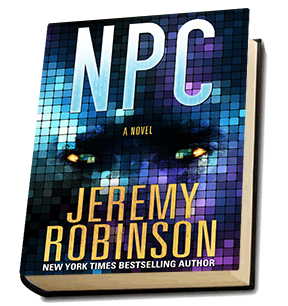

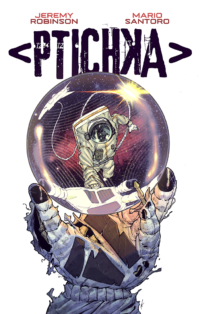
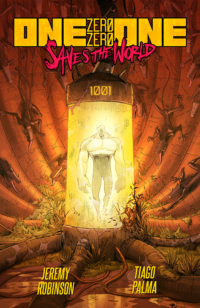
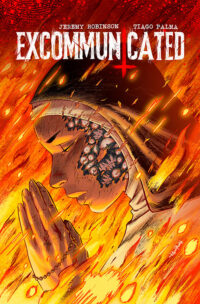
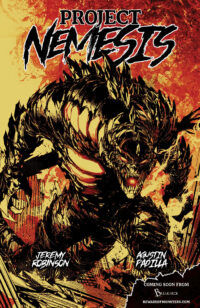
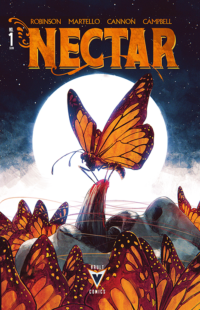
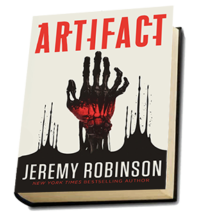

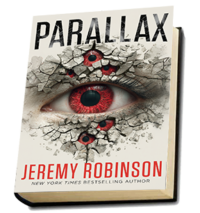
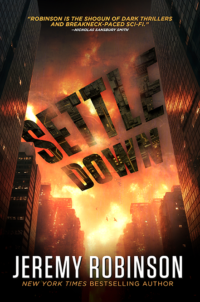
I love this classic struggle between good and evil. I can’t wait to read the challenge with the rest of the story.
Can’t wait!!! When when when??? I get so excited every time a new book of yours is almost here.
it sure starts like it is going to be a whopper of a good book. It wil be interesting to see if it continues that way. I’ll be reading to find out.